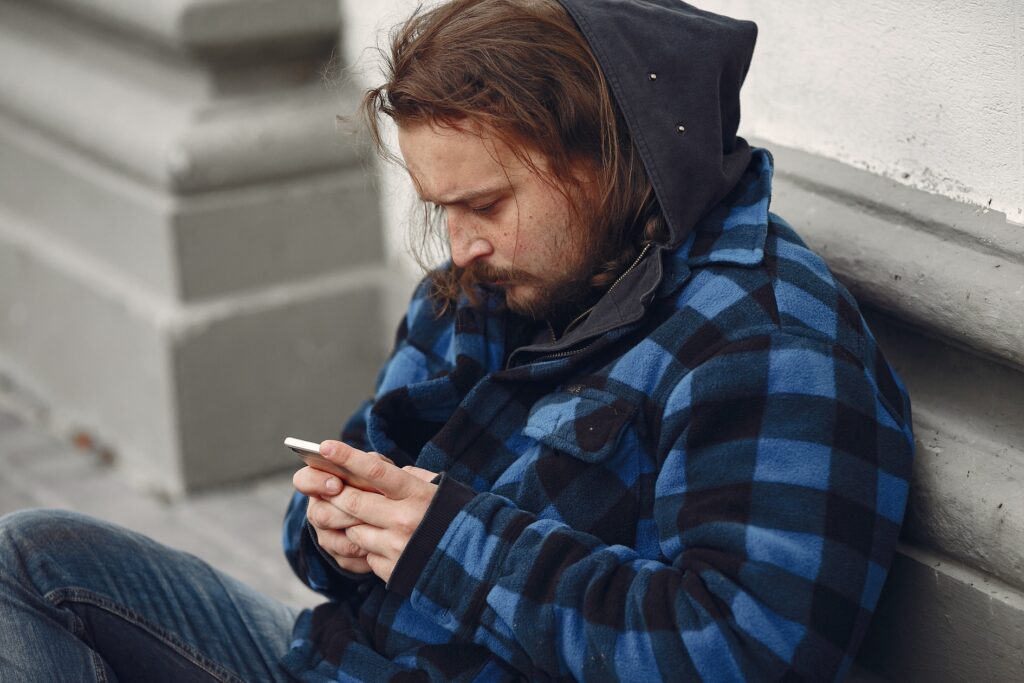
As the iPhone version is tested in the background, I’m looking to the next thing. It seems that an application that is made to help you request a phone repair is no good if your phone is unaccessible. We live in a world of multi tablet devices in one home. But what if you’re not one of the privileged? peopleknowhow.org host this article by Sam Dyce
- The majority of people living on the streets have access to phones but they are
unreliable due to it being dependent on battery, and it risk of being broken or
stolen.- Public spaces are designed in ways that digital exclude the homeless
community, requiring money spent to gain access, lacking a welcoming space,
and limiting access to the web.- Attempts at digital inclusion are also limited due to training not being specific
to the needs of the people, their goals, and to the disabilities some of them
face.- Funding for effective digital inclusion should create spaces that have the
homeless community in mind and that develop them with their personal goals
in mind, face-to-face training which will help to avoid a digital underclass.
Homeless people will be able to access the application over a web version, so they still have access to such a service at a local library or other paid-for facility. In addition, I want to give people with an excess glut of digital devices to be able to donate their devices to charity. This includes the homeless. In a modern world, the right to view the media and education outlets, connectivity and even human rights of all is tied to the ability to be online. This limits access to benefits, health care and services. Indeed, not having access to the internet can be detrimental in our times.
~Mikee

Leave a Reply